The Witcher 3: Wild Hunt – PC vs Consoles. Interview with Adam Badowski, Managing Director of CD Projekt RED
The Witcher 3 – high requirements and platform differences. An interview with Adam Badowski, Managing Director of CD Projekt RED.
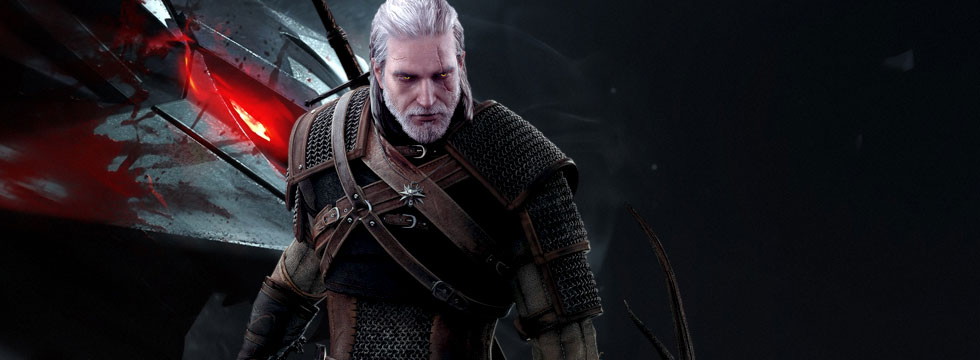
A lot has already been said about the plot and the content of the world in The Witcher 3: Wild Hunt. During our chat with Adam Badowski, Managing Director of CD Projekt RED, we decided to focus on the technical aspects and the development of the game itself.
Recently, we’ve seen a plague of delays from such household names as Rockstar, EA or Warner Bros. Even your company has delayed an upcoming title twice last year. The gamers are sure to complain a bit, but from a broader perspective they will be better off. Stockholders, however…
The case of Assassin’s Creed: Unity made something clear. After a previous delay of Watch_Dogs, Ubisoft probably didn’t want to put off showing the world its new big project. Thus the decision was made to release Unity, even though it was obvious within the development team that it was too early to do it. I think that Ubisoft, as well as other developers, learns that way and notices where the possible risks are, and those usually appear when the gamers get their hands on the final product, expecting it to be sufficiently good.
Projects in this industry are very complicated… Say, how long does it take to implement a boat into a game? A programmer might say that it’s two weeks. What happens when it turns out that it takes a month or two? We have certain buffers, but they eventually wear out. There are many things that are easy to evaluate, like preparing assets. For example, the creation of concept art can be quite predictable, especially if you have a good team. On the other hand, implementing new ideas or mechanics regarding the gameplay is immeasurable. It’s the same problem for everyone, no matter the human resources available. That is clearly visible with big companies that have thousands of people at their projects’ disposal. I believe that gamers understand that. Publishers do, too.
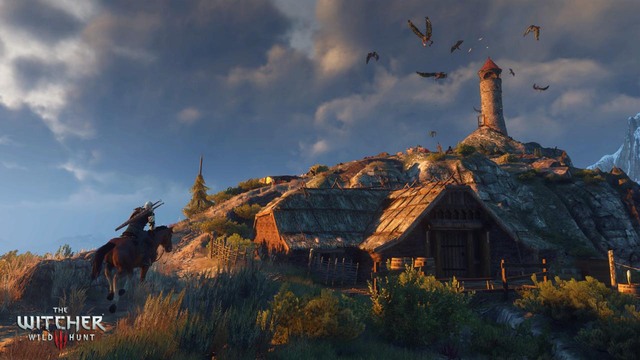
There is also the matter of stockholders whom you mentioned. They don’t always understand what is going on, and how games are made. For some of them, the release date doesn’t matter at all.
How did the members of the development team respond when during that key phase of development they were given additional three months of intensive work? Were they relieved that their workload was distributed over a longer period of time or would they rather already be done with the game?
I really enjoy talking openly about the atmosphere within our studio, and I have nothing to hide here. Sure, the entire team is working really hard, and with such a large group, despite what you may think, not many people have direct contact with the final version, nor do they have time to play it. Basically, the team is consumed with fixing bugs, and doesn’t really know about the actual stage of development. When the delay was announced to the team, the first reaction was disappointment. However, it didn’t come from the fact that we had more months of hard work ahead, as many believed that we would be able to make it in time. Obviously, there were some who were tired, as a delay meant more months spent working on the project. Everyone wants to do their best, but with such hard challenges it’s not merely a matter of wishful thinking – it means that even more effort must be made. What is more, the state of the game is unpredictable; The Witcher 3 is so complex that we get surprised on a daily basis. Even the presentation for the press has made us realize several things we have yet to improve.
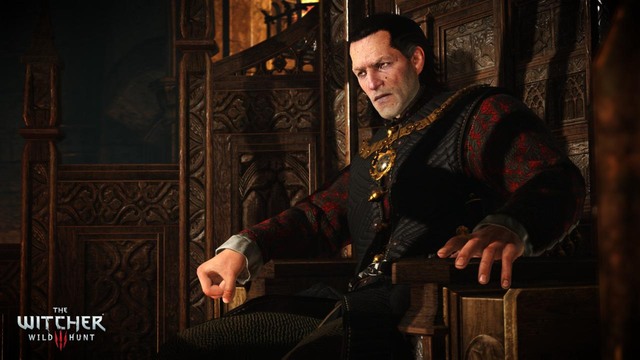
How many people are working on the game?
At the moment it’s about 230 people.
Has the process reached its pinnacle?
Yes. As of now it’s an ‘all hands on deck’ situation, so even the developers who haven’t been involved in specific tasks become testers. They are the best for verifying, as they really know their work inside out. Graphic artists and designers notice different things.
As you have officially stated, you’re postponing the game to ‘limit any bugs to a level that will allow the players to enjoy the game thoroughly’. Does your experience with previous installments of The Witcher and Enhanced Editions somehow change the initial state of the game?
Obviously, we are now making a product available on all platforms, including consoles that work offline, so the player doesn’t have to download a day-one patch to run the game. We are trying to solve as many problems as possible until the release date. We will also use that time to get the game certified, and we intend to work on patches, but when it comes to those, we are talking about minor repairs, if any at all.
Do you get the impression that developers are abusing day-one patches? Take Microsoft. Halo: The Master Chief Collection required a 20GB patch from the get-go.
Games change, and so do fans’ expectations, which are growing constantly. PC games which I remember from long ago were usually very unstable, bugged, and didn’t have a well-thought design. Nowadays, a game is an entertainment product, and the consumers expect much more. Projects are now more complex, bigger, and have constantly improving graphics. They are made by bigger teams, and because of all that, they cost more money. This all results in a need to have less bugs, which can make a development cycle take years. At some point, the teams change, budgets exceed the profitable limit, and projects become risky. A reasonable level of estimated sold copies must be set in order to ensure profitability. Then, the market and the audiences’ expectations have to be taken into account, and at some critical point, the game should finally arrive instead of being perfected to no end.
The consumers want a perfect product, and I don’t think the developers would want to save money at the expanse of the gamers. It’s an industry characterized by big money and high risk. I think it’s better to deliver a good product in good faith, and then carry onto a next one, rather than take risky steps until the company eventually goes bankrupt – which happens too often nowadays.
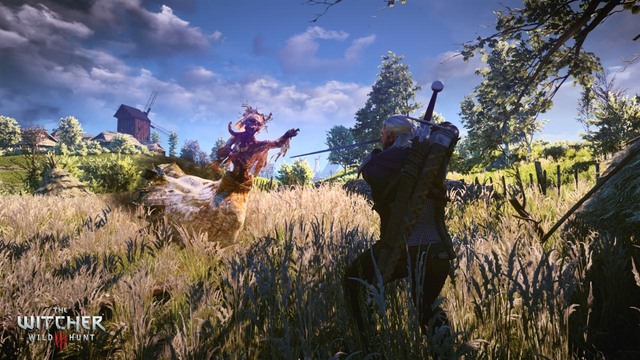
Don’t you think that the industry of AAA games is beginning to chase its own tail? They are expected to have more content and a bigger game world. It seems as though everyone keeps counting square miles, and the numbers of secrets and side missions in comparison to other games. Meanwhile, the budgets keep on growing…
Many people anticipated the fall of consoles dependent on AAA titles. These prophets were entirely wrong, however, as consoles keep selling splendidly. It’s similar in the case of the often criticized Call of Duty – which personally I like very much – the game keeps selling really well. Therefore, nothing really changes in that respect.
The industry must be able to readapt internally, and there is no textbook solution for that. We can’t all move to smaller countries to do cheaper games there – I’m talking mainly about American developers, as the costs of hiring specialists in the US are very high. We have a way better situation with Poland being a ‘cheaper’ country, where we pay less to our employees than in the US – that’s a fact. We gain some money from that, and we have a chance to make bigger games. Besides, RPGs are rarely released, so we operate within a niche.
To recap, I wouldn’t anticipate a fall of AAA games. There was a lot of talk about it two years ago in regard to indie games, but that’s an entirely different segment of the market.
On the one hand, you’ve mentioned a niche, but on the other hand The Witcher 3 is supposed to be a game more targeted at the mainstream audience.
I don’t want to sound like an opportunist, but The Witcher 3 is being made with two different groups in mind. We’ve maintained the richness of the world and ensured the complexity of the plot. More characters have been implemented, as well as thousands of unique dialogue sequences that give a hundred thousand (counting overall) dialogue options, while expanding the game world and making it much more believable.
This layer is essential for RPG fans, The Witcher fans, and for those who have been supporting us from the beginning. Conversely, the prologue and some facilitating features developed for newcomers constitute an equally important element. Quest objectives are clear and understandable, but a player familiar with the world won’t even take notice of them.
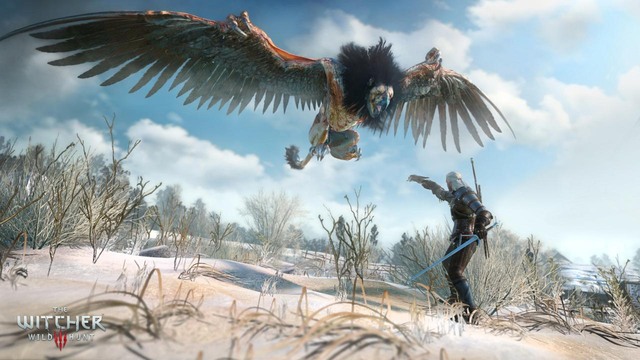
Will there be a chance to disable hints?
Yes, and then embark on a journey of a classic RPG adventurer. No one can accuse us of dumbing down the game. We’ve simply focused on making the plot, the world and the mechanics clear. We explain everything from the start, and every single character is introduced with a particular plotline. To be honest, the plot will gain momentum later into the game, once we’ve finished introducing everything in the beginning.
You once said at a conference that you guys aspire to be the second Bethesda. Are you getting closer to achieving that goal?
We have a few openings here and there. The Witcher 3 needs to stand its ground as an independent production. Besides, we are entering a new market with Playstation 4; it’s our debut on a Sony platform.
We have a lot of faith in this chance, and that’s why we’ve changed the logo. You can start the story from scratch, without any knowledge of the world. That’s the element made with the broader audience In mind.
Do you already know a simple way to solve the issue of importing saves from the previous games on all available platforms? Are you planning a solution similar to the one used in Dragon Age: Keep, or something else entirely?
When it comes to consoles, you can continue the game after declaring a few facts, but we’ve tried to take a different approach than Dragon Age: Keep did, and use the game itself and the dialogues to make those choices.
So it will be seamlessly implemented into the gameplay?
Yes, since the prologue. When we get to Vizima, the player will get to talk about their previous decisions. In that sense, it’s not a “chart” you have to fill. However, I’d rather not reveal too much at this point. It’s also worth mentioning that it’s an optional element.
Will we be able to import saves on PC? Will the solution you’ve mentioned before be available to players who didn’t keep their saves?
Yes, the PC version offers both solutions.
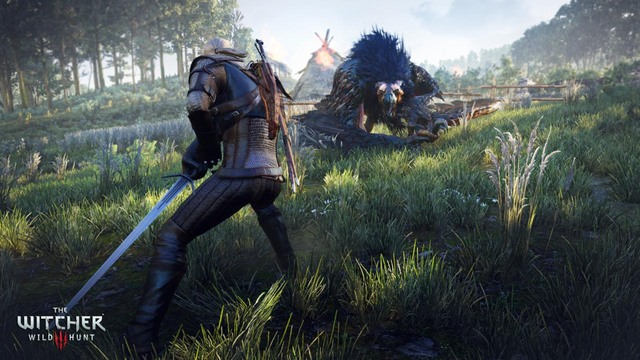
When it comes to The Witcher 3, you haven’t talked much about its technical side. Let me quote your statement for Game Industry of March 2013: ‘The PC allows for more at the moment, but new platforms are stepping up. In the future, it should be much easier to unify the requirements.’ Has that future arrived?
I think so. It is impossible to make a game for three different platforms that will utilize all of the various platforms’ unique features and specs. It’s a technical fact. Making an exclusive title allows to squeeze more out of the target device.
The Witcher 3 is a rich production full of unique characters and a few thousand people. Let’s not forget castles, two large cities and the enormity of the world that has to be filled up. We’ve done everything we could to make the game look spectacular. And this doesn’t depend on the platform… We could up the resolution in the PC version, as the hardware is stronger, but at the same time we wouldn’t be able to do something new, like, e.g., rewriting the rendering engine that would be able to render such an amount of triangles. If we had lightmaps of interiors, the game would have looked much smoother, but in this case we wouldn’t have managed to simultaneously provide dynamic lightning in an open world. The game would have chunked all of the memory, even on PCs.
Platform unification exists – we have a single build, which is distributed to each one of them. The game is the same; the draw distance is the same. Minor differences result from the fact that the GPU has different parameters on different consoles, which can result in, e.g., the changes in color temperatures.
How will the PC ultra version hold up against consoles?
It will be possible to spot differences in, for example, Nvidia HairWorks, but those are very demanding graphically, so a strong PC will be needed. What I’m about to say might not be diplomatic. In the future you will be able to turn on the option of ubersampling, which, upon the release of The Witcher 2, was killing the game, and will probably do the same with this title, so we don’t want to unlock it for now. It makes the game look better, but the requirements are insane.
Are all the textures and models the same?
Yes, there is only one version, otherwise we wouldn’t be able to make the game in time. We would have to take it all apart, and then build it and test it on three different platforms at the same time, which is impossible to do. Therefore, we have one common basis, and then transfer it to other platforms.
We manage it differently on platforms with less memory. Less complex models are loaded; it all depends on what is going on on the screen at the moment. To sum up, there are only a few differences between PC, PlayStation 4 and Xbox One. They are not aimed at changing the configuration; instead their purpose is to solve certain problems.
Have you followed the comments under The Witcher 3 VGA trailer? Many people were complaining about the drop in graphics quality in comparison to the first video materials.
Yes, we’ve seen them…
Aren’t you afraid that after its release the game will share the fate of Watch_Dogs, where the game was being compared to the first E3 gameplay?
If someone rewatches the trailer they will notice that the character models look better in the game; even Geralt is more polished – for instance, he has better shaders. We’ve added a bunch of details and we’ve significantly improved the facial expressions and the lip sync. We have 7 different dubbing versions, so we’re not able to record the changes on actors’ face with the performance capture technology, like it was done in, say, Call of Duty. That wouldn’t fit on three blu-ray discs. Keeping that in mind, we’ve implemented a dynamic system based on vowels and consonants, similar to the one in the previous two installments, where it did rather poorly. With The Witcher 3, the difference is astounding – we have set the bar really high for the entire industry as compared to other games that rely on this system (such as BioWare games – author’s note); that’s another thing that wasn’t visible in the trailer.
Meanwhile, the quality of the lightning in the trailer remains a matter of taste. We’ve made a mistake choosing to render some shots in dark and greyish colors. To put it simply, that was the option picked by the engine. I think that there will be locations that will look jaw-dropping, and no one will claim that they differ from what was seen in the trailer. Unfortunately, there will also be fragments where the game will look worse. It’s the same with GTA – when the wind picks up and it gets grey, especially in the forest, the graphics seem certainly worse than in a neon-filled and lively city.
Will the game be displayed at 900p on Xbox One?
It surely will. 900p with upscaling to 1080p, but improving these conditions is not out of the question.
The Witcher 3 for PC has rather high requirements, while the minimal ones resemble the requirements recommended in GTAV.
The requirements we’ve announced are real, it’s not as if we’re lowering them. That’s what our programmers have fought so hard for – the optimization is getting better every day.
Will we get 30fps or 60fps on the recommended requirements for PC?
I think we'll stick with 30fps. Until the very end we intend to work on efficiency – it is crucial, as the machines are quite varied. Our programmers strongly urged us not to resolve to demagoguery, confuse anyone, or bring down the announced requirements to accommodate lower spec. It’s as I’ve said and it can only be better.
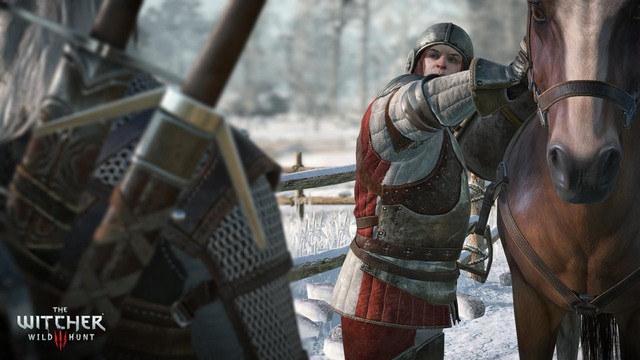
Weren’t you too quick to announce Cyberpunk? Or was it rather a necessary stunt to show your stockholders that CD Projekt Red has a bigger portfolio?
Not entirely. Obviously, it’s important to come up with plans and execute them. In that way, we wanted to present a certain vision of ourselves. Such a thing is very important for a company like ours – a company that is both a developer and a publisher. The moment we announced Cyberpunk, we certainly got busy with it. Later on, it turned out that we needed help in completing The Witcher 3. We have put a large part of the team to work on finishing the game. Once it’s released, we’ll be able to focus on Cyberpunk. After all, we haven’t announce its release date so no one can complain.
Will we get to see Cyberpunk at E3?
This year will belong to The Witcher.